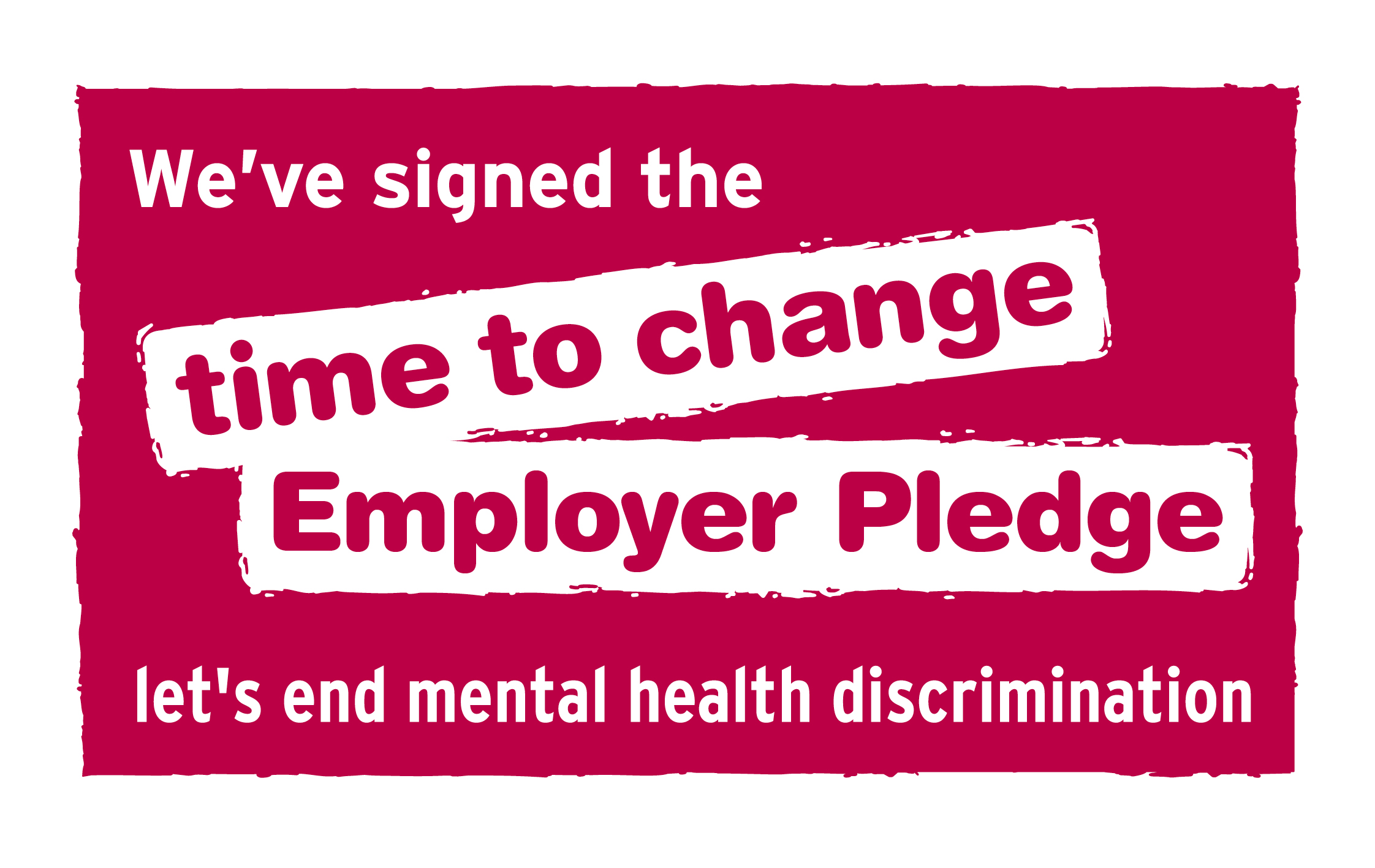Featured
Featured

Every day we work with companies doing amazing things with their data. We are therefore delighted to be sponsoring the very first Experian ‘Data Excellence’ award at this year’s Lloyds Bank National Business Awards. It gives us the chance to celebrate organisations for their innovative thinking and excellent use of data - an area we at Experian are very passionate about. The quality of entries for this category was high, showcasing some real-life examples of how data-driven solutions can not only deliver better outcomes for customers, but also embrace the opportunities presented by an ever-changing data landscape. However, there could only be one winner. So, we are pleased to announce that Cleveland Police are the deserving recipient of the inaugural award for their ‘Golden Nominal’ project – an initiative which demonstrates how the power of better data can have a positive impact on policing. The project responds to the huge challenge that having vast, unquantifiable number of duplicate records was posing on delivering an efficient and appropriate response to the community. And not only has it far surpassed targets in terms of reducing duplicates, most importantly it’s provided opportunities to serve the community better and identify those most vulnerable far more quickly. Such was its innovative nature, the project was recognised at a national level by the Home Office, who provided co-funding from its Innovation Fund – a fantastic result for them. The award was presented by Experian’s Chief Data Officer, Jonathan Westley, to Maria Hopper from Cleveland Police at the awards ceremony in London. She said: “We’re absolutely thrilled to be named as winners of the ‘Data Excellence’ award. Our data initiative allowed us to solve a challenge that was hindering our ability to respond quickly and accurately to those who need it most in our community. For us, winning this award is fantastic recognition of the critical role that data plays in delivering positive policing and keeping people safe.” To hear more from Maria, you can watch this short video. We would like to congratulate Cleveland Police on a well-deserved award win, along with all the other winners on the night. To find out more, you can visit the National Business Awards website.

The following is written by Jan Barratt, Experian. We owe everything to the millions who lost their lives in the Great War, fighting for our freedom. Without their sacrifice, the world we know would be a very different place. This November marks a whole century since the guns finally fell silent on WW1. It’s only fitting we use this landmark anniversary to remember and celebrate everything they did for us. The Games of Remembrance 2018 is an opportunity to do exactly that. Inspired by a generation’s love of football and its ability to unify, The Games of Remembrance harnesses the power of the beautiful game to remind us all of the immense bravery and sacrifice of millions. We’re proud to sponsor the Games and to play a small part in helping those memories live on and to commemorate the people who lost their lives in the conflict. Furthermore, we’re thrilled that this year’s celebration comes to Nottingham, a place where Sir John Peace, Her Majesty’s Lord-Lieutenant of Nottinghamshire, and the late Eric Barnes built up Experian from its roots almost 50 years ago. Today, we employ more than 2,000 people across the East Midlands region. We’re proud to be sponsoring the Games of Remembrance, and we are proud to be part of the Nottingham community. We remember.

We recently participated in Finovate Fall, where we joined top fintechs and financial institutions from around the world to debate about the current state of the financial services industry and more importantly, its future. A future where the so-called ‘experience economy’ will unfold and those putting the customer at the center of their innovation will thrive. But, how to get there and remain relevant in an ever-challenging environment? Committing to a culture of technology and innovation that transforms interactions between businesses and consumers is the first step. Take financial institutions and fintechs, for example. Despite their different approaches to what it takes to serve their customers better, both traditional and non-traditional industry players agree that technologies such as artificial intelligence (AI) and machine learning play a pivotal role in their respective digital transformation strategies. But with the change comes the challenge: most of organizations recognize they still struggle to fully operationalize the output of their advanced predictive analytics. To be true to our own commitment to technology and innovation and help businesses execute machine learning models within their decision processes, we have launched a new release of our flagship decisioning platform. The latest PowerCurve release integrates machine learning to deliver a faster and better analysis of data. These actionable insights will help our clients identify the opportunities presented by each of their customers quicker and more easily. Leveraging today’s technology to sustain tomorrow’s growth We believe that enabling businesses to leverage their current technology investments to support future growth is key to ensure they get the full benefit of their commitment to innovation. The latest PowerCurve capabilities allow custom plug-ins to be added at any time to support the next generation of technology and decision-making strategies while ensuring consistent, precise and personalized experiences that satisfy consumers’ demands over time. This enhanced flexibility means that businesses can get value of their current data and technology investments today and keep at pace with the latest and most effective decision management strategies across the entire customer life cycle. In addition, PowerCurve will continue to satisfy compliance requirements and provide the necessary governance and explainability that is essential in today’s market. With the updates to our decisioning platform and incorporation of machine learning capabilities, businesses will be able to make the right decisions today, resting reassured that those decisions will remain precise and relevant in the future.

The workplace is more just than a place of business. It should be a community that supports its employees and promotes a culture where people can be their most authentic selves. That’s an ideal Experian very much understands, believes in and strives for. And because of that commitment, we’re proud to be recognized by Great Place to Work as one of the best workplaces in the country. We’ve built a workplace that encourages collaboration, creates constant innovation and supports diversity. We greatly appreciate the hard work our employees have invested to help consumers, clients and our local communities. And it’s important that we continue to support that great work. Offering health and family resources, promoting diversity programs, and carrying out employee-wellness policies are just a handful of ways Experian has helped to foster a supportive work culture for our employees. Our goal is to create a workplace where people feel accepted and their work is validated so that they can continue to perform at the very highest level. A supportive work culture contributes to a positive work experience and employee motivation. In the Great Place to Work survey completed by about 2,000 U.S. based employees, 96% reported having great pride working at Experian and 95% believe the company has a great atmosphere. Experian’s dedication to their employees has not gone unrecognized. Forbes Magazine placed Experian in the Top 100 list of the “World’s Most Innovative Companies” for the fifth year in a row, and The Orange County Register named Experian a top workplace in 2017 for the fifth consecutive year. Experian has also been recognized for its commitment to diversity by the Advancing Women in Technology organization and the Grace Hopper Leadership Index. These accolades reflect the company’s workplace culture as an environment of employee growth and success. Company success starts with the success of our employees. Building an environment where employees feel supported, challenged, and valued is a top priority for Experian. We are proud of the hard work our employees have dedicated to helping our communities and we remain committed to supporting their success.

Digital transformation is dramatically changing the way consumers and businesses interact. E-commerce and social media are setting the standards for digital experiences. The advance of fintech is driving competition. All while fraud reaches an all-time high, prompting an ever-stringent regulatory framework. This confluence of emerging technologies and intense competition adds even more pressure to grow business faster. In such a scenario, growth is fueled by acquiring more customers – those with whom you can build lasting, valuable relationships over time. However, traditional approaches for customer acquisition no longer suffice. As a business leader, how do you tackle these challenges? What can you do to attract and acquire new customers? To help answer these questions, we commissioned Forrester Consulting to survey over 900 key decision makers across industries. What we found is that getting actionable insights from complex data sources to make consistent, precise decisions is still a major challenge. The majority of executives also indicated that not having a single customer view had a direct impact on profitability. They struggle to make accurate decisions that are both meaningful for consumers and profitable for business. To overcome these challenges and realize their strategic priorities, businesses of all sizes are increasing their investment in advanced analytics and decision services. We understand that the current market environment can be daunting. But with challenges come new opportunities. We can help you modernise your digital decisioning approach to enable precise and profitable lending decisions across the life cycle. Using a unique blend of best in class data, advanced analytics and digital decision strategies you will know your customer better. As a result, you can, deliver the experiences they demand and make lending decisions with less risk. Download the executive summary of our Global Decisioning Report 2018 and discover how businesses of all sizes are leveraging data, advanced analytics and digital decisioning to better serve customers and future-proof growth.

We’re committed to creating a better tomorrow for consumers, clients, our people and our communities. Experian enables life’s biggest moments and ambitions through the confident use of data. We’re unlocking the power of this data to help people access the essentials they need to fulfil their life ambitions. As the world’s largest credit bureau operator, we have an important role to play in enabling access to finance for millions of people who could otherwise be excluded from mainstream credit and services. We help people prove who they are and build a strong financial track record. Our data and analytics also gives lenders – our clients – the information they need to make fairer, faster decisions for people who are applying for credit. We deliver our purpose through our core business activities, our social innovation products and solutions, and our corporate responsibility (CR) programme. One of these initiatives is the annual One Young World competition. One Young World was founded in 2009 with the intent of bringing together young talent from around the world who are passionate about creating social change to address the most pressing issues the world faces. For the sixth year, Experian is proud to support One Young World and every year, we send five ambassadors, one from each of our regions, to attend the summit. To become a One Young World Experian ambassador, employees were asked to submit a proposal for a new product, partnership or initiative that supports our brand purpose of Creating a Better Tomorrow. The winning submissions, one from each region, were selected to become ambassadors. Over the coming months, they will work with employees across the organisation to bring their ideas to fruition. Meet the five Experian ambassadors we will be sending to the summit in October and the projects they will be driving throughout the year to create a better tomorrow. Be sure to follow @Experian on Twitter as we’ll be posting live updates from the event in October! Jessica Childs Jessica works in the Experian Marketing Services - Product Team in North America. She has worked at Experian for almost two and a half years. Last October, she went to Puerto Rico and the Virgin Islands to help people upended by the hurricanes. This experience inspired her to think about how Experian can use data to help people who are at the highest financial risk after natural disasters. Her project is made up of two parts: preparing for a disaster and understanding the financial risks posed by natural disasters; and disaster recovery which involves providing tools and resources to be successful after a natural disaster. “I am so excited to be selected as one of Experian’s 2018 One Young World Ambassadors and to continue my work that I started almost a year ago to help victims of natural disasters who are at the highest financial risk. The amount of natural disasters continues to increase year-over-year and while there has been an incredible outpouring of volunteers and support, there is always more to be done to not only educate those at risk, but also identify victims and help mitigate the inevitable financial repercussions.” Tanya Kostadinova Tanya is part of Decision Analytics, based in Bulgaria. She has worked at Experian for a year. Early this year, Tanya participated in a giving back day, organised by the Experian CSR team in Bulgaria, to paint houses for orphaned children and children in foster care. Inspired by what she saw, her idea involves creating an application for these children to give them the best start in life. The application would include information about their labour and healthcare rights, financial advice, advice on how to find a job, and this information will be presented in simple videos and easy-to-follow quizzes. “I am very happy and excited to be working on my project. I believe this idea will increase financial education and will help these vulnerable groups of people. In this way, we will create a better tomorrow not only for them but for all of us as society.” Larissa Alfino Larissa is part of our Internal Communications team based in Brazil and has been at Experian for a year. Larissa’s project is called Open Windows, it’s a global project aimed at promoting socioeconomic empowerment for refugees by breaking down social barriers, providing essential advice and helping them to gain access to credit and social services. This information would be served through an app allied with a network of partnership with financial and social institutions for a healthy social integration. “I am honoured to have the opportunity to be part of Experian’s One Young World Ambassadors and connect with other young leaders to create a better tomorrow. Many refugees are living extremely tough lives and Open Windows would be a simple and affordable way to help financially empower them.” Laura Thomas Laura is part of our Community Involvement team in the UK&I and has worked at Experian for almost 18 months. It’s predicted that there are over 40 million people trapped in modern slavery across the globe and Laura’s idea focuses on how Experian can help find and support these people. The projects aim is to develop the Experian Modern Slavery Assistance Programme – a collection of products that could be used in partnership with anti-slavery charities to identify people being kept in slavery and help rebuild the financial identities of those freed from slavery. “I am so pleased and excited to have been selected as one of Experian’s One Young World Ambassadors for 2018. It’s an amazing feeling to be chosen and I’m eagerly anticipating all that the summit has to offer.” Jasmine Rodil Jasmine is a Product Management Associate in the Credit Services Product Management team, based in Sydney, and has worked with the company for three months. An estimated 39 million people living in India are pushed into poverty each year because of healthcare expenses (a figure that is expected to rise) and Jasmine wants to do something about it. Her vision is to create a Health and Wellness indicator to improve a person’s ability to afford and access healthcare in India. The project would involve using data to look at the patient’s journey to access healthcare and the issues they face and suggest actions to gain access to quality healthcare and health insurance. “I am not only grateful to have been selected as one of Experian’s 2018 One Young World Ambassadors but I am proud to be amongst such a talented and amazing cohort of people with the same passion as myself, to drive change.” Our Ambassadors are currently collating their top takeaways on this year’s One Young World summit in the Netherlands – we’ll be updating this blog with those insights very soon so make sure you come back to have a read about their experience.

The following is written by Alison Sharp, Experian. Mental illness affects thousands of people in the UK, their friends, families and work colleagues. In fact, one in four of us will be affected by mental health issues at some stage of our lives. It's hard enough to experience mental health problems, without having to face the judgement, shame and isolation that often surrounds it. Today is World Mental Health Day, an opportunity for us, and others, to help raise awareness of mental health issues. However, our work to change the way people think and act about mental health problems doesn’t stop here. I am proud that our MD, Charles Butterworth, signed the Time to Change pledge last month, to help bring an end to mental health discrimination and show our commitment to supporting mental health awareness. Signing the pledge marks the beginning of a shift to make sure well-being and mental health support becomes the norm for us. I believe that the workplace should be an environment where everyone can thrive, no matter who they are. Experian joins the wide movement of more than 800 organisations that have signed the Time to Change pledge, including E.ON, British Gas, Ernst & Young, Transport for London, Royal Mail, Barclays, Shell, Pepsico, the Church of England, Sunday Mirror, Marks and Spencer, WH Smiths and many NHS trusts, universities, and local authorities. At Experian, we are dedicated to making colleagues feel more support and connected to the help we have, as and when they need it. I truly believe that mental health is something that shouldn’t be brushed off or pushed aside and I hope that if you are suffering, or know someone that is, that you have the courage to reach out for support because after all, it is OK to not be OK.

Working at Experian I am constantly amazed by the many innovative ways we work with data, to find new and exciting solutions with our partners. If we can harness the power of data, and derive real value from it, it has the potential to make hugely positive changes to the way we all live and work. And there’s no doubt that organisations of all shapes and sizes are stepping up to meet the challenge, investing in technology and insight to move with the times. With that in mind, I am delighted to be able to announce the finalists for Experian’s inaugural ‘Data Excellence’ award, part of this year’s Lloyds Bank National Business Awards. This award is the first of its kind, and was designed by us to recognise organisations that are pushing the boundaries in this space, creating opportunities for people, businesses and society in the process. We’ve had some great entries and the final shortlist features some of the finest examples of those working at the forefront of data and analytics. It’s a diverse and dynamic group. Data, innovation and technology has the power to change the world for the better and there’s no better way to demonstrate this than through real-life examples. The award shortlist showcases this perfectly. All our finalists have demonstrated the capacity to use data-driven solutions to not only deliver better outcomes for their customers, but embrace the opportunities presented by an ever-changing data landscape. So, who made the final shortlist? Center Parcs Cleveland Police Minicabit Principality Building Society SyndicateRoom Validis Zurich Insurance The judges now face the difficult task of selecting a winner, someone who truly personifies data excellence. At Experian, we pride ourselves on our culture of continuous innovation, that’s why we are so excited to celebrate the UK’s most ‘data excellent’ companies at this year’s National Business Awards. I’d like to wish all the finalist the very best of luck, To find out more, you can visit the National Business Awards website.

Innovation is at the heart of our business and our culture. It is one of the reasons we’re proud to be named one of the top 100 most innovative companies in the world for the fifth year in a row by Forbes magazine. In the publication's eighth annual list of the "World's Most Innovative Companies," Experian climbed to the rank of 57th and is amongst the top 10 most innovative companies headquartered in Europe. Technology, innovation and new sources of data are fusing to create an unprecedented number of new ways for us to solve pressing business and consumer challenges. This accolade underscores our commitment to innovation, and using the power of data and technology to transform lives, businesses and economies for the better. At Experian, we have created a culture of continuous innovation focused on opportunities for businesses and consumers in today’s digital and data economy. Just a few examples include our involvement with the TechCity FinTech4All competition, which aims to discover a new generation of innovators and entrepreneurs who will change the future of finance, and our Experian MicroAnalytics work, which has extended over 5 billion credit offers to the world’s unbanked people. Experian has jumped up 40 places in this year’s Forbes ranking, placing us alongside some of the world’s leading technology companies including Tesla, Netflix and Amazon. This accolade demonstrates investors' confidence in Experian’s ability to innovate, both today and in the years ahead, and is a testament to the tireless work of our employees. Even more exciting is that we’re leading our industry in innovation. This is reflected in Experian being the only credit bureau to make the list this year. And innovation experts agree. According to author Greg Satell, who profiled Experian in his highly touted business book Mapping Innovation: A Playbook for Navigating a Disruptive Age, “Experian is the manifestation of a culture of discovery that enables it to grow and evolve while remaining at the forefront of innovation.” The key to our success going forward is to continue to actively seek out unresolved problems and to create new products and technologies that will helps transform the way businesses operate and consumers thrive in today’s society. Learn more about some of our pioneering innovations here: Connecting Businesses in Brazil Through Data Analytics Experian DataLabs Is Experimenting with a ‘Voice to Credit’ Feature Delivering Value in the Digital Age: Exploring UK Attitudes Towards Data We're on the Brink of a New Era of Innovation FinTech Breakthrough Selects Experian for “Consumer Lending Innovation Award” in 2018 Data on Demand – Unlock New Insights, Create Opportunities Faster than the Speed of Fraud -- CrossCore